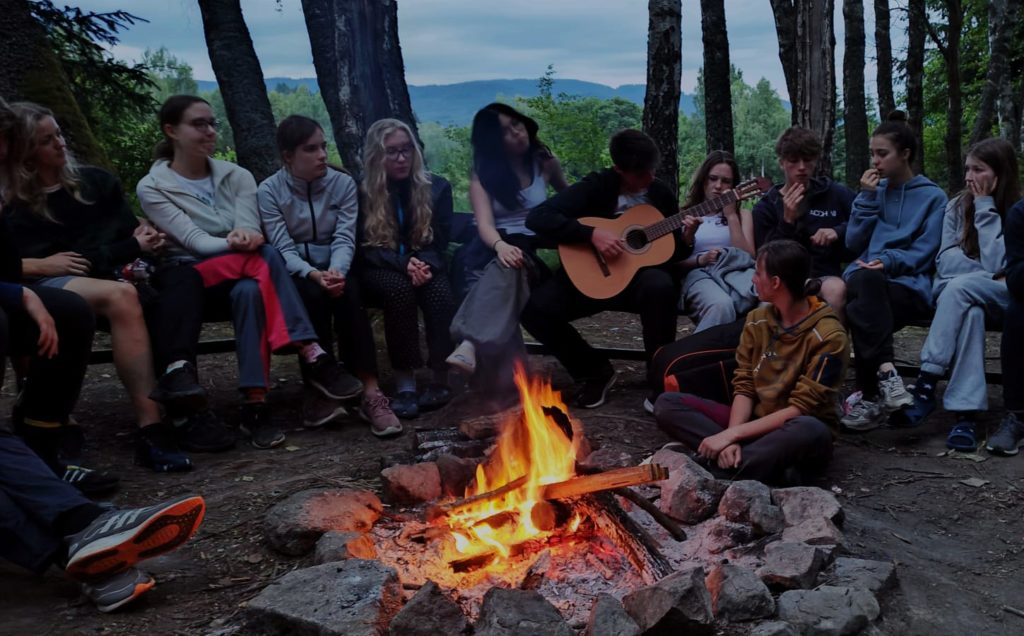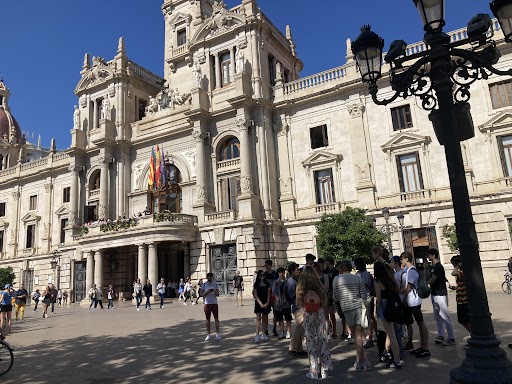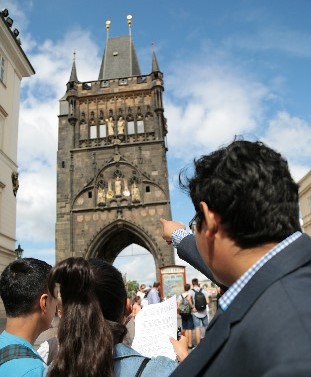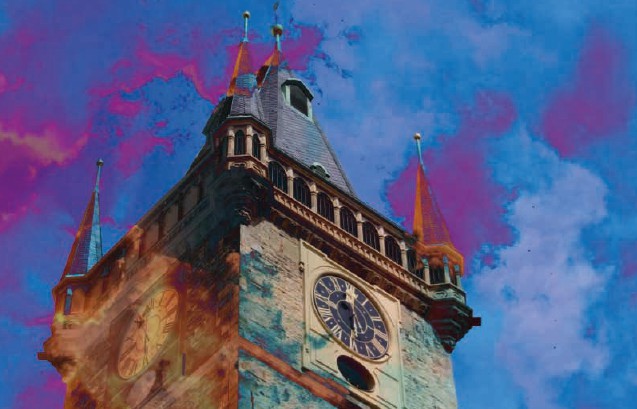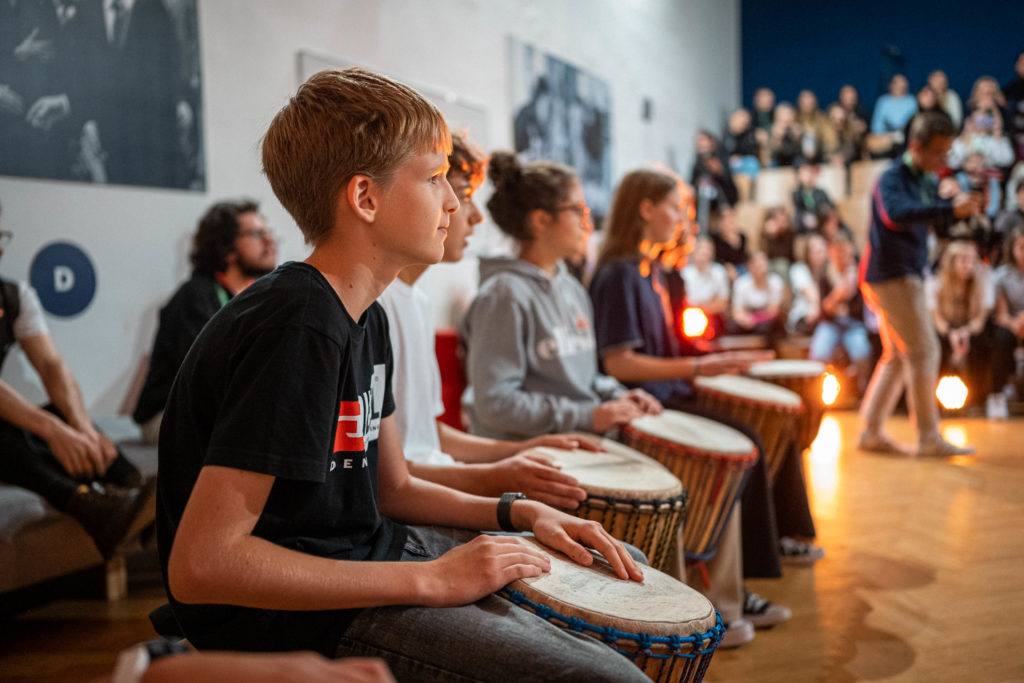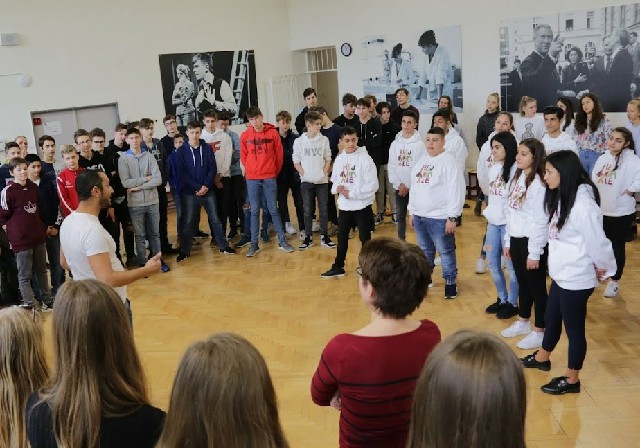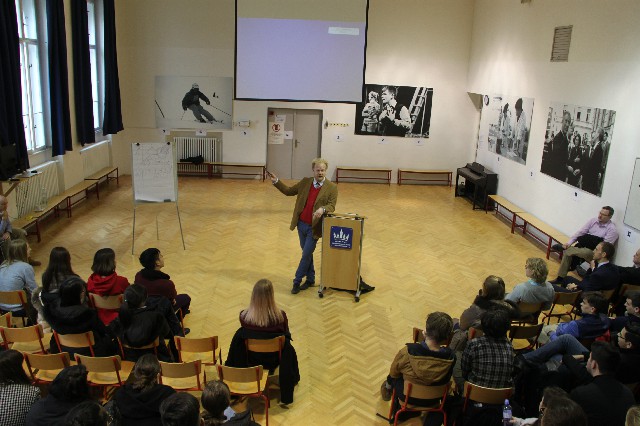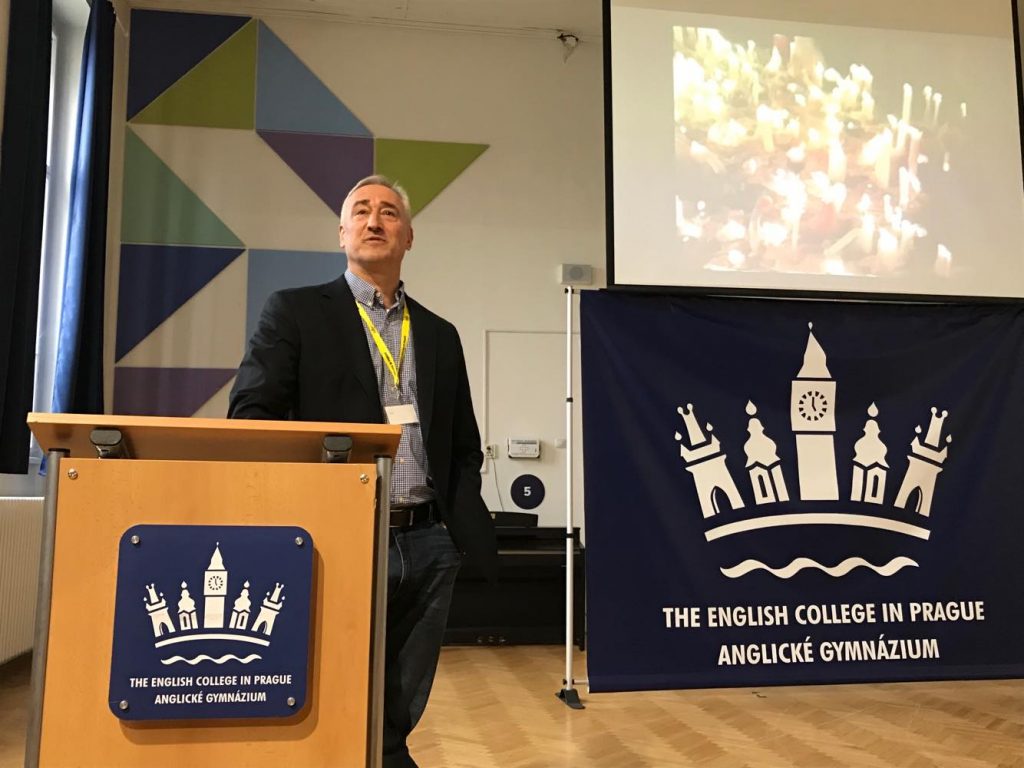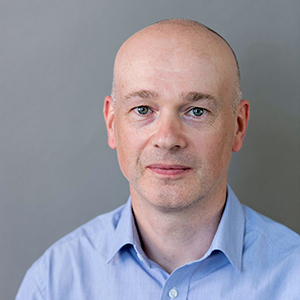Our school year is framed by trips. While at the beginning of the school year students in Years 1- 4 go on induction trips, the end-of-year trips are more educationally focused. Students in Year 1 sample a DofE expedition. They learn how to read maps, how to pack and all students go on an intensive First Aid Course. The PE Department organises a CCC trip for students in Year 2. Students learn and develop skills needed for camping, canoeing and cycling in a beautiful area of Šumava by Lake Lipno.
Year 3 students are taken on a Science trip to the Jeseníky mountains. They visit a paper factory in Velké Losiny, a power plant in Dlouhá stráň and explore the Jeseníky countryside.
It is obvious that subjects such as History, Science, Literature, Art, Geography and Biology are all “in action” during these trips. Students can appreciate not only that knowledge they gain in school can be used outside the classroom, but also that everything they learn during the trips will help them to understand what they are taught back in school.
Year 4 students explore universities as they are coming closer to their University decision making. They can choose between visiting Oxford or exploring the main Moreavian universities.
All trips also play another important role in school life – they enable students and teachers to spend time together in an informal setting. Thanks to the trips, students and teachers learn more about each other and develop friendly relationships.
:more programme